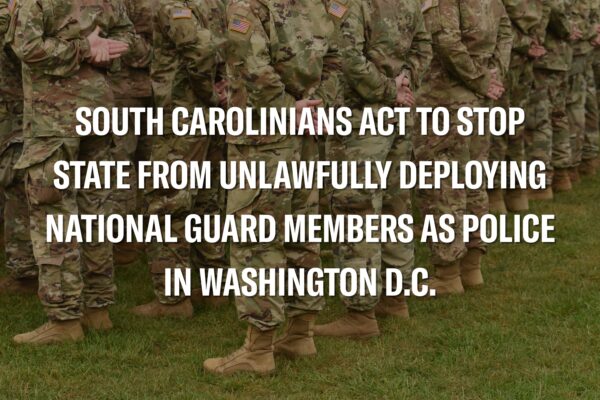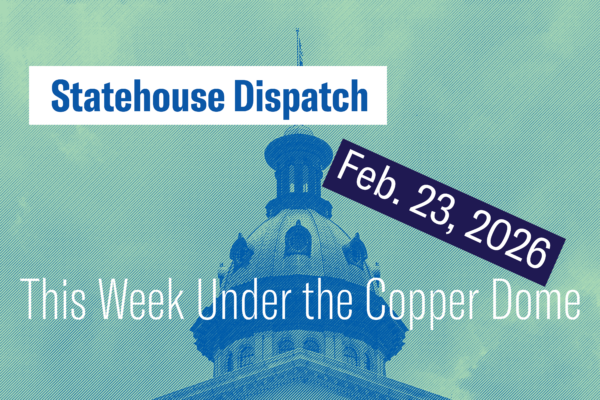Criminal Justice

The rights guaranteed to the accused, defendants, offenders, and incarcerated are fundamental political rights that protect all Americans from governmental abuse of power. These rights include the guarantee against unreasonable search and seizure, the right to reasonable bail, the right to due process of law, and the right to be free from cruel and unusual punishment. They are indispensable to a free society.
The ACLU of South Carolina works to ensure that the state complies with the Constitution, state law, and international human rights principles. We are committed to ending the policies that have given the United States the highest incarceration rate in the world.
In the Courts
As part of our impact litigation strategy, we represent plaintiffs who have had their civil liberties infringed by South Carolina law enforcement agencies and correctional institutions.
Note: We are not able to accept or respond to requests for legal assistance. If you are looking for legal aid, please visit our Find Legal Help page.
In the Legislature
We review every bill filed in the legislature and push back against bills that erode the rights of South Carolinians in their interactions with police.
In the Community
We are proud to work in coalition with groups including the People's Budget Coalition who fight for effective public safety measures and alternatives to over-policing and incarceration.
The Latest

Statehouse Dispatch: Feb. 2, 2026

South Carolinians Act to Stop State from Unlawfully Deploying National Guard Members as Police in Washington D.C.

Did the Justice Department abandon people in South Carolina jails?
Stay Informed
Sign up to be the first to hear about how to take action.
By completing this form, I agree to receive occasional emails per the terms of the ACLU’s privacy statement.
By completing this form, I agree to receive occasional emails per the terms of the ACLU’s privacy statement.

